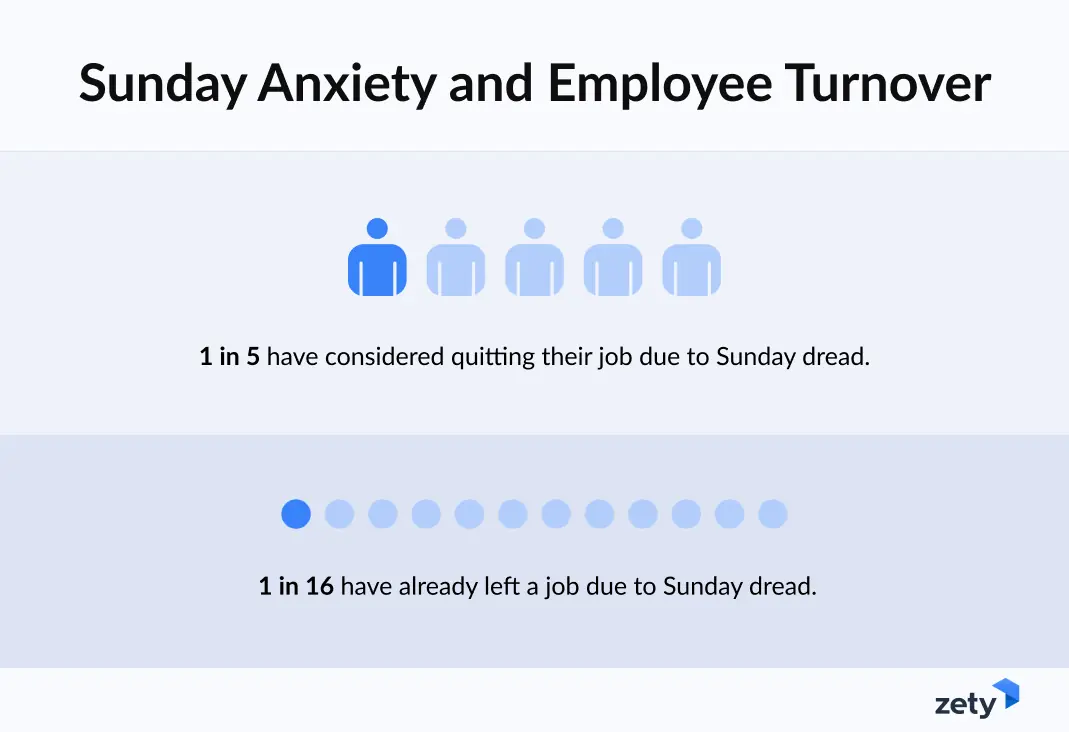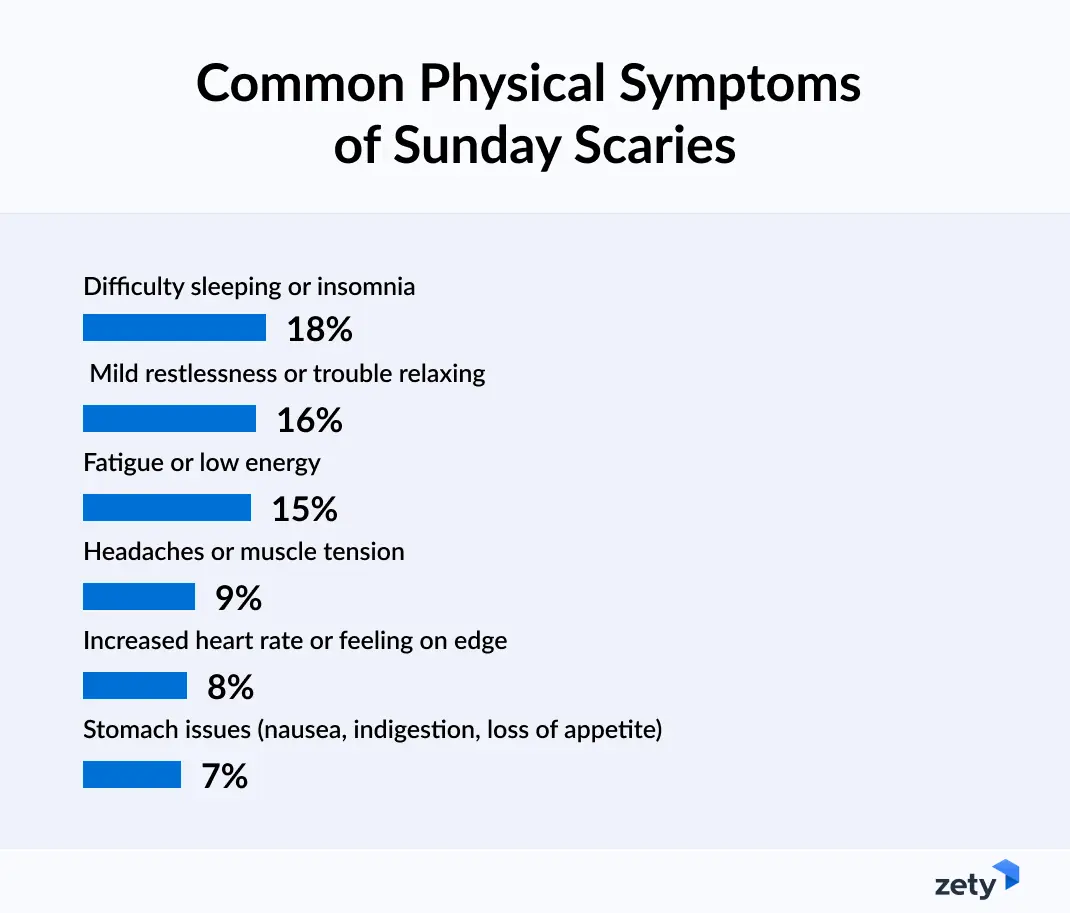
If you’ve ever spent your Sunday evening dreading the workweek ahead, you’re not alone. Zety’s Sunday Scaries & Job Anxiety Report reveals that this feeling isn’t just a passing worry—it’s a major workplace issue affecting mental health, productivity, and even career choices.
But just how deep does this problem run, and what’s driving employees to their breaking point? Here’s what the data reveals.
Key Findings:
- Sunday anxiety is widespread: 61% of workers experience feelings of anxiety or dread on Sundays before the workweek begins.
- Pre-work stress is driving resignations: 1 in 5 workers have considered quitting their job because of the Sunday Scaries—1 in 16 have already left a job for this reason.
- Sunday Scaries take a physical toll: 73% of employees report experiencing physical symptoms such as insomnia and headaches due to pre-work anxiety.
- Work-related stress leads to absenteeism: 20% of employees have called out sick on a Monday to avoid work-related anxiety.
- Employees see workplace changes as the solution: Workers say higher pay (35%) and remote work options (21%) would help combat their Sunday Scaries.
The Real-World Impact of Sunday Anxiety
While 61% of employees experience feelings of anxiousness or dread before the workweek begins, the real-world consequences of Sunday Scaries extend well past these emotions. For many, this stress can negatively affect their personal lives and even influence major career decisions:
- Nearly 1 in 3 (30%) say that Sunday dread has ruined their weekend plans.
- 20% admit they’ve called out sick on a Monday because of work-related stress, and 37% have thought about doing this.
- 1 in 5 have considered quitting their job due to Sunday dread, and 1 in 16 have already left a job for this reason.

What this means: Sunday dread isn’t just an emotional hurdle—it’s a signal that work stress is seeping into employees’ personal lives, affecting their well-being and career choices in significant ways.
Sunday Stress Isn’t Just Mental—It’s Physical
Work-related stress doesn’t stop at mental strain; it often manifests in physical symptoms. 73% of employees have noticed physical effects due to pre-work anxiety, such as:
- Difficulty sleeping or insomnia (18%)
- Mild restlessness or trouble relaxing (16%)
- Fatigue or low energy (15%)
- Headaches or muscle tension (9%)
- Increased heart rate or feeling on edge (8%)
- Stomach issues (nausea, indigestion, loss of appetite) (7%)

What this means: The body reacts to work anxiety just as it would to any other chronic stressor, showing that Sunday Scaries aren’t just a mindset issue but a legitimate health concern.
What’s Keeping Employees Up on Sunday Night?
As Sunday evening approaches, 70% of employees find themselves thinking about work tasks, deadlines, or responsibilities. However, not all of their worries are directly tied to specific job duties. Their top 'Sunday nightmares' include:
- Heavy workload (20%)
- Unfinished tasks (18%)
- Upcoming deadlines (14%)
- Meetings or presentations (8%)
- Workplace politics (8%)
- Fear of being fired (5%)
- One-on-one meetings with a boss or manager (5%)
What this means: Beyond immediate tasks, many employees are wrestling with long-term job concerns, from unstable workplace dynamics to the pressure of constant deadlines.
How Employees Try to Cope
To manage their Sunday anxiety, workers most frequently turn to:
- Binge-watching TV (17%)
- Talking to friends and family (15%)
- Exercise (12%)
- Doomscrolling social media (9%)
- Mindfulness or meditation (8%)
- Working to get ahead (7%)
- Drinking (6%)
- Therapy (2%)
What this means: Most coping strategies provide short-term relief rather than addressing the root cause, suggesting that employees feel stuck managing symptoms rather than solving the problem.
What Would Help Eliminate the Sunday Scaries
Employees highlighted several key workplace changes that would help reduce their Sunday dread:
- Higher pay (35%)
- Remote work options (21%)
- A later start time on Mondays (17%)
- A different job entirely (14%)
- No Monday meetings (13%)
What this means: Meaningful workplace changes—such as higher pay and flexible schedules—are what employees see as the real fix, rather than surface-level stress management techniques.
Methodology
The findings presented were obtained by surveying 1,000 U.S. workers on February 10, 2025 using Pollfish. Participants were asked about pre-work anxiety on Sundays, including its impact on mental health, physical well-being, and career decisions, responding to various question types including yes/no questions, scale-based questions gauging agreement levels, and questions that permitted the selection of multiple options from a list of answers.


